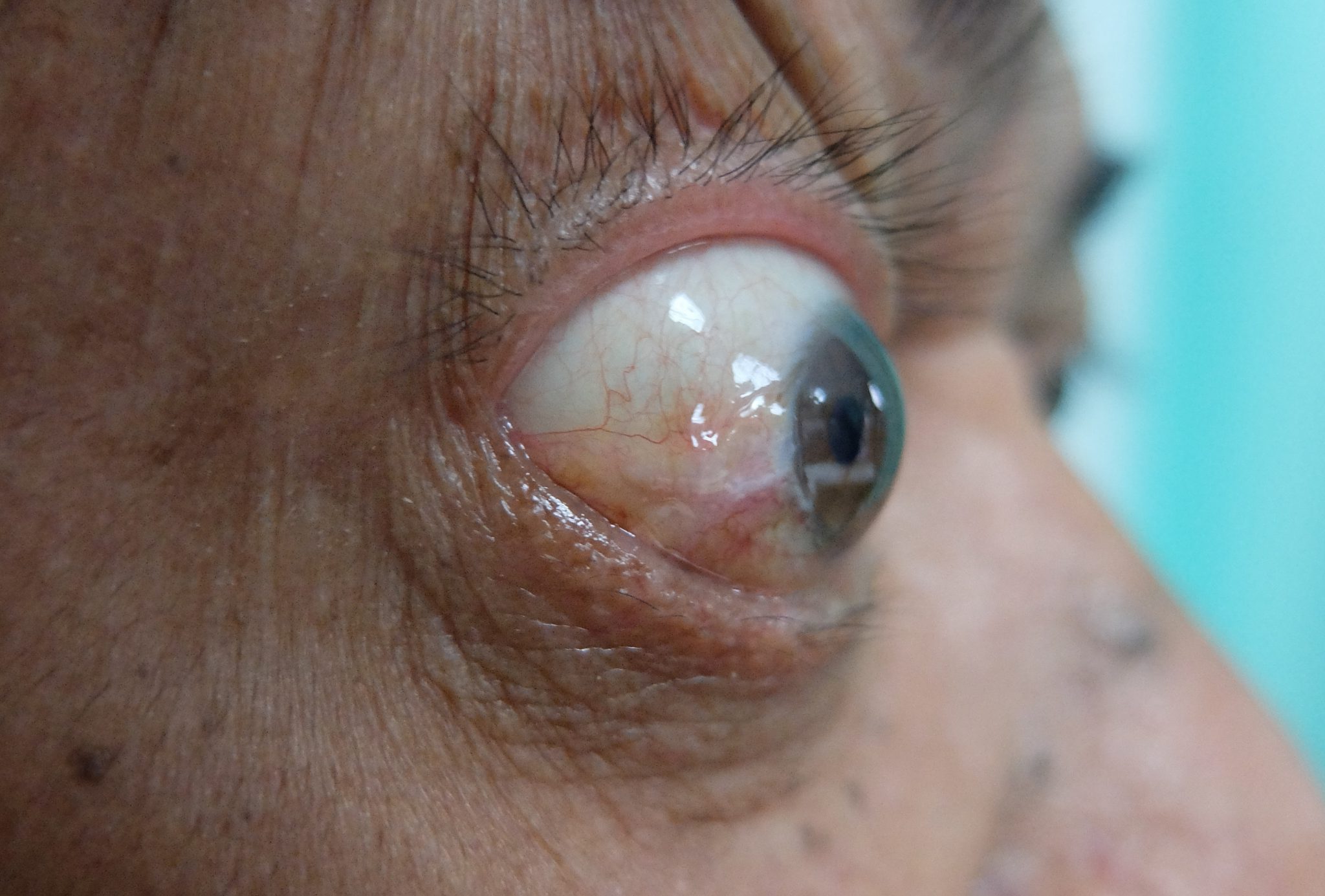
Basedow Ocular Syndrome, also known as Graves' ophthalmopathy, is a condition that affects the eyes, often linked to thyroid disease. Ever wondered why your eyes might feel gritty or look more prominent than usual? This syndrome might be the culprit. It can cause symptoms like bulging eyes, double vision, and even eye pain. Understanding this condition is crucial for managing its effects on daily life. Whether you're experiencing these symptoms or just curious, learning about Basedow Ocular Syndrome can help you recognize and address it early. Let's dive into 25 intriguing facts about this eye condition that might surprise you!
Key Takeaways:
- Basedow Ocular Syndrome, linked to thyroid disease, causes bulging eyes, dryness, and double vision. Early diagnosis and lifestyle changes can improve symptoms and prognosis.
- Support groups and early treatment play a crucial role in managing Basedow Ocular Syndrome. Quitting smoking and protecting the eyes can alleviate symptoms and complications.
What is Basedow Ocular Syndrome?
Basedow Ocular Syndrome, also known as Graves' Ophthalmopathy, is an eye condition linked to thyroid disease. It primarily affects the muscles and tissues around the eyes, causing various symptoms.
-
Autoimmune Disorder: This syndrome is an autoimmune disorder where the body's immune system mistakenly attacks the tissues around the eyes.
-
Thyroid Connection: It is closely associated with Graves' disease, a condition that causes the thyroid gland to become overactive.
-
Bulging Eyes: One of the most noticeable symptoms is exophthalmos, where the eyes bulge outwards.
Symptoms of Basedow Ocular Syndrome
Understanding the symptoms can help in early detection and treatment. Here are some common signs to look out for.
-
Dry Eyes: Patients often experience dryness and irritation in their eyes.
-
Double Vision: Diplopia, or double vision, is another common symptom due to misalignment of the eyes.
-
Redness and Swelling: The eyes may appear red and swollen, often accompanied by discomfort.
Causes and Risk Factors
Knowing what causes Basedow Ocular Syndrome can help in managing the condition better. Here are some key factors.
-
Genetic Predisposition: Genetics play a significant role in the development of this syndrome.
-
Smoking: Smokers are at a higher risk of developing more severe symptoms.
-
Gender: Women are more likely to develop this condition than men.
Diagnosis of Basedow Ocular Syndrome
Early diagnosis is crucial for effective treatment. Here are some methods used to diagnose this condition.
-
Blood Tests: Blood tests can help determine thyroid hormone levels and the presence of antibodies.
-
Imaging Tests: CT scans and MRIs are often used to get a detailed view of the eye muscles and tissues.
-
Eye Examination: A comprehensive eye exam can help in assessing the severity of the condition.
Treatment Options
Various treatments are available to manage Basedow Ocular Syndrome. Here are some common options.
-
Medications: Anti-thyroid medications can help control the overactive thyroid.
-
Steroids: Corticosteroids are often prescribed to reduce inflammation and swelling.
-
Radiation Therapy: In severe cases, radiation therapy may be used to target the affected tissues.
Lifestyle Changes
Making certain lifestyle changes can help manage the symptoms better. Here are some tips.
-
Quit Smoking: Stopping smoking can significantly improve symptoms.
-
Eye Protection: Wearing sunglasses can help protect the eyes from wind and sunlight.
-
Hydration: Keeping the eyes hydrated with artificial tears can alleviate dryness.
Complications
If left untreated, Basedow Ocular Syndrome can lead to several complications. Here are some potential issues.
-
Vision Loss: Severe cases can lead to permanent vision loss.
-
Corneal Ulcers: The condition can cause ulcers on the cornea, leading to further complications.
-
Eye Muscle Surgery: In some cases, surgery may be required to correct double vision.
Prognosis
The outlook for patients with Basedow Ocular Syndrome varies. Here are some factors that influence the prognosis.
-
Early Treatment: Early diagnosis and treatment can significantly improve the outcome.
-
Severity of Symptoms: The severity of the symptoms at the time of diagnosis plays a crucial role.
-
Response to Treatment: How well a patient responds to treatment also affects the prognosis.
Support and Resources
Support groups and resources can be invaluable for patients and their families. Here are some options.
- Support Groups: Joining a support group can provide emotional and practical support.
Final Thoughts on Basedow Ocular Syndrome
Basedow Ocular Syndrome, also known as Graves' ophthalmopathy, affects many people worldwide. Understanding its symptoms, causes, and treatments can help those affected manage their condition better. From bulging eyes to double vision, the symptoms can be challenging, but early diagnosis and treatment make a significant difference. Treatments range from medications to surgery, depending on severity. Lifestyle changes, like quitting smoking and managing stress, also play a crucial role in managing the syndrome. Awareness and education about Basedow Ocular Syndrome can lead to better outcomes for patients. Stay informed, consult healthcare professionals, and support those dealing with this condition. Knowledge is power, and with the right information, managing Basedow Ocular Syndrome becomes more manageable.
Frequently Asked Questions
Was this page helpful?
Our commitment to delivering trustworthy and engaging content is at the heart of what we do. Each fact on our site is contributed by real users like you, bringing a wealth of diverse insights and information. To ensure the highest standards of accuracy and reliability, our dedicated editors meticulously review each submission. This process guarantees that the facts we share are not only fascinating but also credible. Trust in our commitment to quality and authenticity as you explore and learn with us.
